October kicks off Mental Illness Awareness Week. While mental health should be discussed year-round, this week is an important time to shine a light on subjects that might not be brought in the public eye as often. Wellness and self-care are buzzwords right now, but it is important to remember that managing your mental health IS taking care of your health.
Handling your emotional state is just as important as any other ailment that is bothering you and getting to the root of the matter is an important first step. According to the National Alliance on Mental Illness, or NAMI, it isn’t as simple as taking a test to find out what your mental illness diagnosis may be. However, there are signs of certain disorders that a professional can look for. Getting the right diagnosis and finding the right treatment plan, which can range in many different ways, is essential to managing your mental well being.
According to Harvard Health, exercise can be an extremely effective treatment for depression. In some cases, it works as well as antidepressants according to psychiatrist Dr. Craig Miller of Harvard Medical School. Though this is not generally the case for those who suffer severe depression. For those it benefits, it could be from the endorphin rush or possibly the long term effect of proteins called neurotrophic factors being released over time, which improves your mood. Exercise can improve nerve cell connections in the brain and therefore lessen your depression. The issue often is motivation. For those with severe depression, it is accompanied by severe aches, pain, fatigue, and loss of appetite, which makes it difficult to get up and go for a run. However, a small amount of moving around can help you feel better. If the thought of running or working out is too much, a gentler form, such as yoga or tai chi, might be just the thing to get in some restorative movement and meditative breathing the calm the nerves and lover your stress levels.
While managing mental health can include exercise, stress management, and meditation as well as therapy and medication, there are some steps you can take with food and supplements that can boost your mood and cut the blues off at the pass. Nutritional psychology, a term for helping to maintain certain mental health homeostasis through diet, is a popular method to balance mental health issues naturally with changes in your eating habits. According to Healthline, a study by BMC Medicine showed that a clinically depressed pool of subjects who took medication for mental illnesses was put on a Mediterranean diet. After 12 weeks, the participants found themselves much improved. Reducing sugar, adding in fruits, vegetables, whole grains, seeds, nuts, and lean proteins seems to make a positive impact, according to Harvard Health. Plus, according to CBS News, a study done at Columbia University by Dr. James Gangwisch, found that a diet high in refined carbohydrates led to depression in post-menopausal women.
Mood-boosting omega-3 fatty acids can boost your mood according to Everyday Health. The British Journal of Psychiatry published a study that linked the decline in consumption of omega-3 fatty rich foods and the rise in mental health issues in the West. According to Harvard Health, over 30 clinical trials have had people with depression add omega-3 fatty acids to their diet as either an addition to medications or as a stand-alone aid. While the levels of EPA and DHA have been found to help in different areas, a study at Massachusetts General Hospital found depressed patients responded well to the EPA treatment.
Protein can be both a building block and a mood stabilizer. Often those who are craving sugar or carbs are protein deficient since protein helps keep your blood sugar levels stable. So if you aren’t getting enough protein, you may crave a sweet treat to self regulate. For many who suffer from depression, this can be a vicious cycle, and it is thought that they would do well if they follow a specific eating plan that is higher in protein. According to the Edison Institute, you need amino acids to create the neurotransmitters that your brain uses to regulate your moods. The amino acids can be derived from protein you digest since there are nine which we can’t create ourselves. GABA is the main neurotransmitter in the brain which keeps our brain from falling prey to things like depression, anxiety, panic, drug abuse, and other stresses. Lean proteins like eggs, fish, and lean meats are sources for these amino acids. Another source is SFH’s PURE Whey Protein Powder. Mix up a shake and keep your neurotransmitters firing on all cylinders.
Reducing sugar or going sugar-free can make a big impact for some. The National Health Institute has found that an overload of sugar in the system can lower the brain protein called brain derived neurotrophic factor. When there is a lack of BDNF, it can lead to depression and anxiety. Sugar is also known to cause inflammation, as Psychology Today points out, which includes the brain. Sugar may also present symptoms such as trouble concentrating, blurry vision and exhaustion. Psychology Today states that a study in 2008 showed that rats given a large amount of sugar showed high levels of anxiety.
Sleep is also crucial for those who suffer from depression and other mental illnesses. For those who are partial to coffee or other caffeinated beverages, mood may be affected according to the Mayo Clinic. Since a lack of sleep can worsen depression, an overload of caffeine can disrupt restorative slumber. Plus, according to the National Institute of Health, too much caffeine can exacerbate those who have anxiety or other panic disorders. In test subjects, caffeine raised cortisol levels for those who had abnormalities in their neuronal systems – meaning those who already had a propensity for anxiety were affected more by the caffeine. If you can’t seem to get through the day without that extra boost but are afraid of setting off a panic attack with that double espresso, then SFH REVIVE may just be the thing. Using a combination of ribose, carnitine, and CoQ10 to make you more alert without feeling buzzy or nervous.
Of course, diet and exercise can’t replace medical help if that is necessary. Speaking with a doctor or mental health professional is always important if you have thoughts of overwhelm, despair, or self-harm.
If you feel you need more mental health resources or help, contact the NAMI HelpLine to find out what services and supports are available in your community.
If you or someone you know needs help now, you should immediately call the National Suicide Prevention Lifeline at 1-800-273-8255 or call 911.





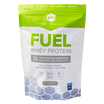




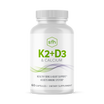
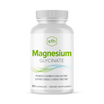
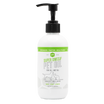
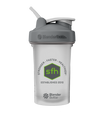




Leave a comment
This site is protected by hCaptcha and the hCaptcha Privacy Policy and Terms of Service apply.